Notice the licence plate:
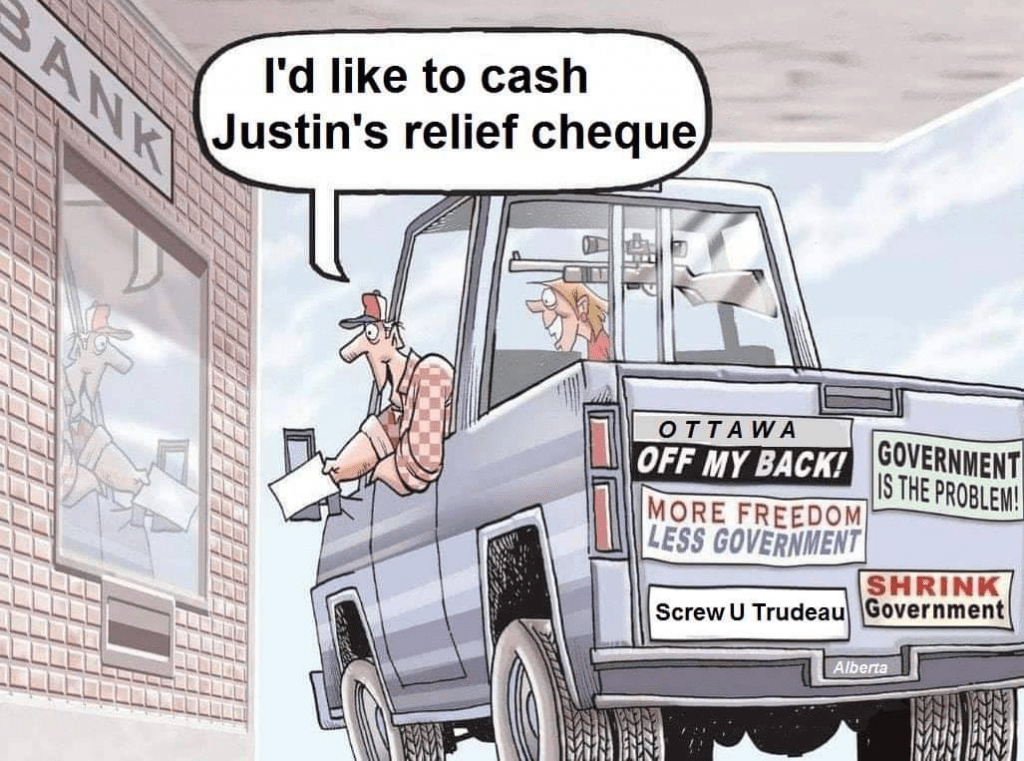
Anonymous
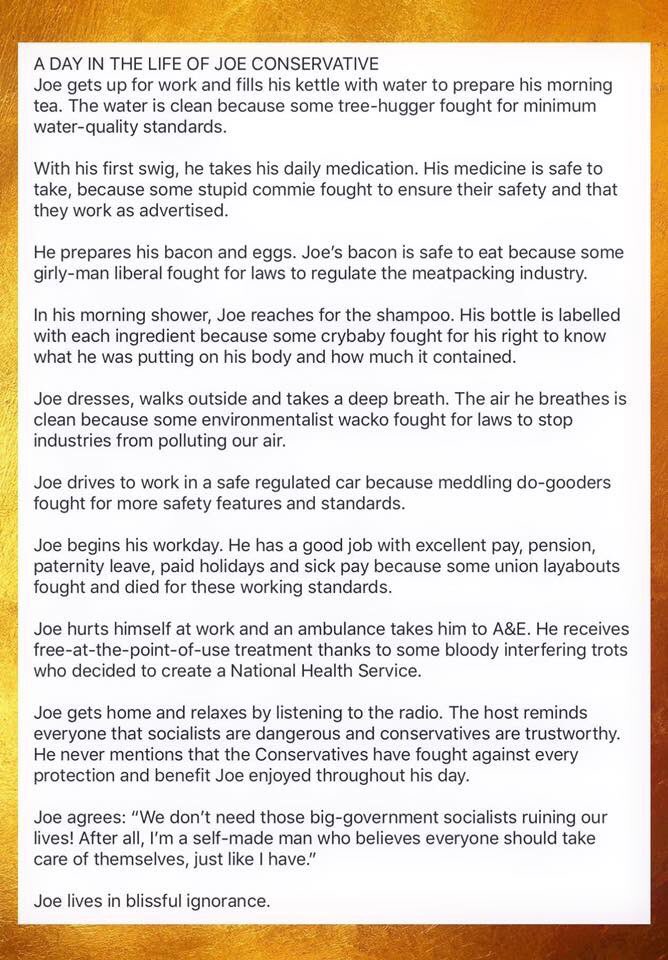
Unfortunately, thanks to Alberta’s many selfishly rotten ultra-conservative/republican citizens and the dirty politicians they vote for like Jason Kenney, the corrupt, law-violating, non-regulating AER, and the law-violating, polluting oil industry, Alberta’s air, food, land and water are not clean.
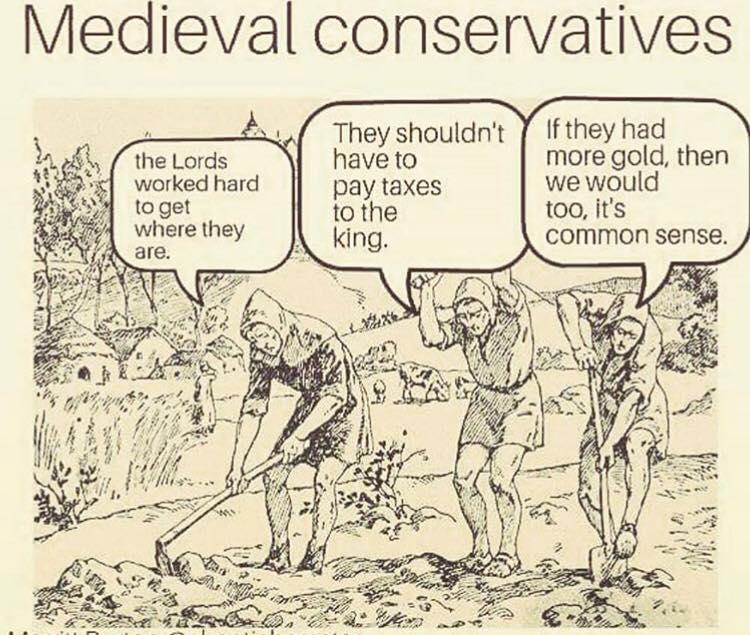
Suddenly an independent Alberta doesn’t seem so appealing by Gillian Steward, April 7, 2020, The Star
It was only a few weeks ago that Alberta’s independence movement – Wexit – was full of vim and vigour.
New members signed up by the thousands after the October federal election which delivered a minority government for Justin Trudeau’s Liberals while completely shutting them out in Alberta and Saskatchewan.
In early November 700 people packed a dance hall in Edmonton to vent their fury against the federal government which they blamed for all the province’s economic troubles.
“We will not allow ourselves to be divided. We’re going to make Alberta great again, and that is when we cut ourselves off from the leech that is Eastern Canada,” said Wexit founder Peter Downing, sporting a blue “Make Alberta Great Again” ball cap.
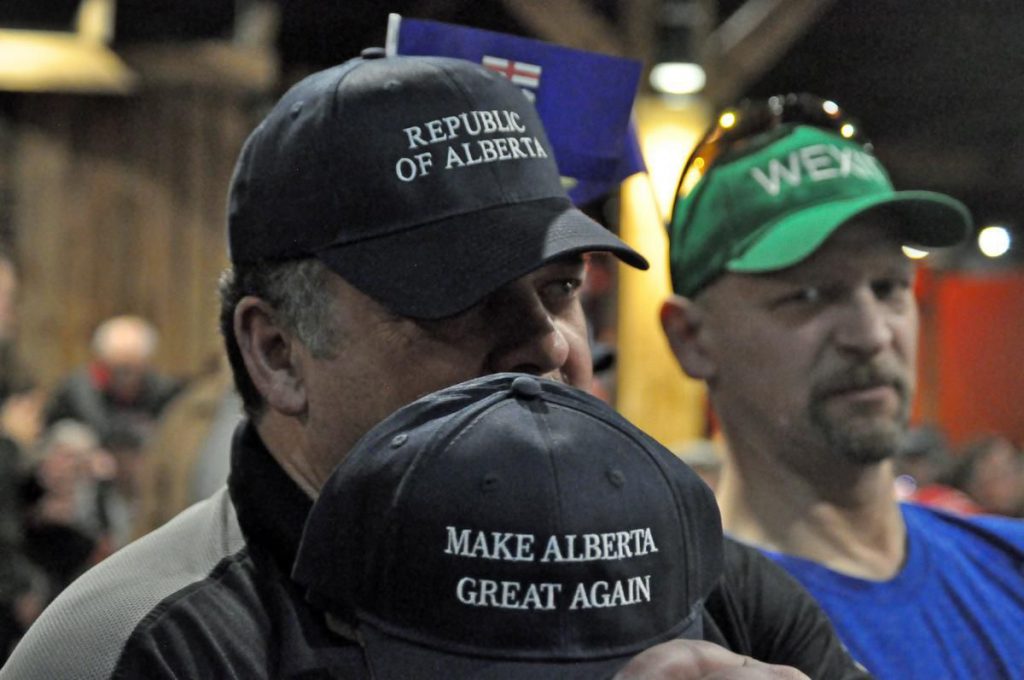
But while at the time the thought of running away from home may have been emotionally satisfying for Wexiteers it may not seem like such a good idea in the face of a pandemic.
Who knows how much money will eventually pour into Alberta over the next few months, given Trudeau’s plans for significant wage subsidies, income guarantees, Employment Insurance, and government-backed loans designed to buoy people and businesses hit hard by the shutdown of the economy?
But one thing is for sure: an Alberta government would never have been able to mount that kind of disaster relief.
And given that the price of western Canada’s particular brand of oil (Western Canada Select which is heavy on bitumen content) is under $5 a barrel thanks to the Russians and the Saudis flooding the market, how would this Alberta government raise revenue? By hiking taxes?
And what if the newly independent state of Alberta was not part of the Canadian health care system? Would doctors actually want to practice in Alberta? Wouldn’t a lot of them leave for other provinces? They are already embittered given that the UCP government has been waging war with them even as they strain to deal with COVID-19.
Would independent Alberta be able to acquire desperately needed medical masks and equipment without the added weight of a much more powerful level of government?
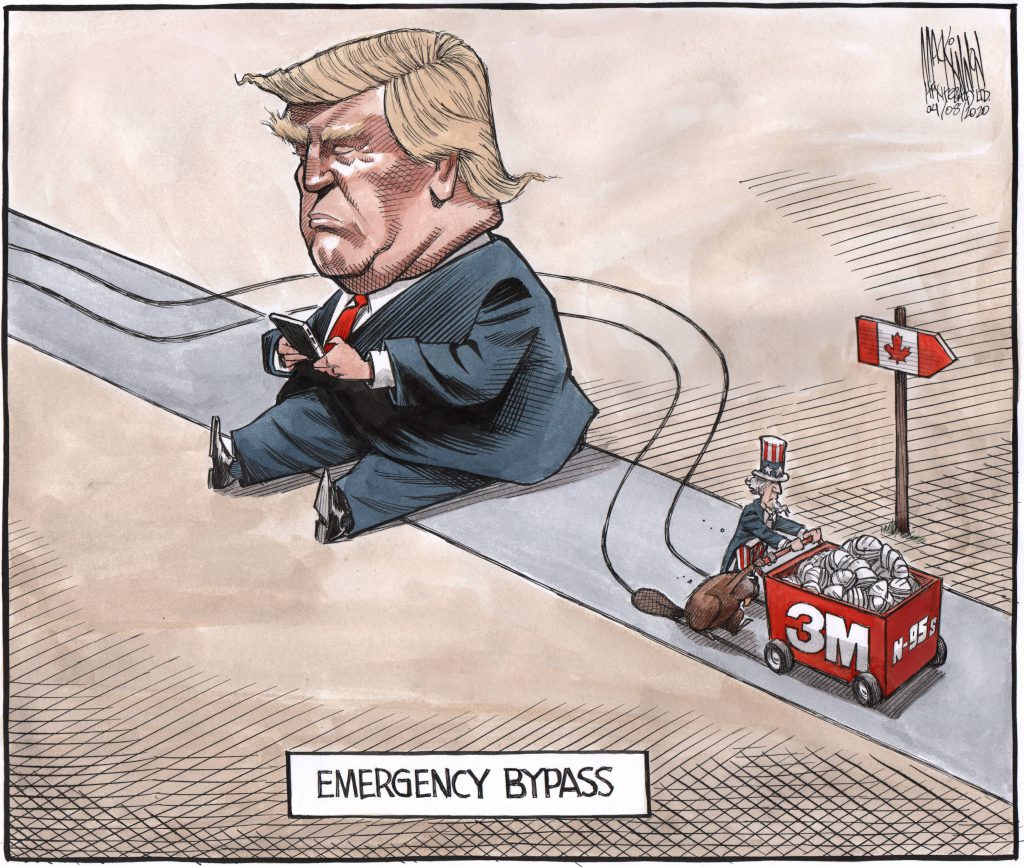
Would 3M be inclined to listen to Alberta if it ran out of much-needed masks?
And if Indigenous and remote communities in the northern part of the province needed the help of the military to establish field hospitals who would Alberta call on?
For some rabid Wexiteers the pandemic has only strengthened their conviction that the federal government is out to deliberately destroy Alberta.
As in this ridiculous Tweet posted by Downing, a former RCMP officer and Wexit’s head honcho, right after schools and child care centres were closed in Alberta: “If Alberta shuts down schools and daycares, just about every parent has to stay home from work to care for their kids…. SHUTTING DOWN our Economy. Just like the Feds want. The “Climate change” scare failed. Don’t fall for the new scare.”
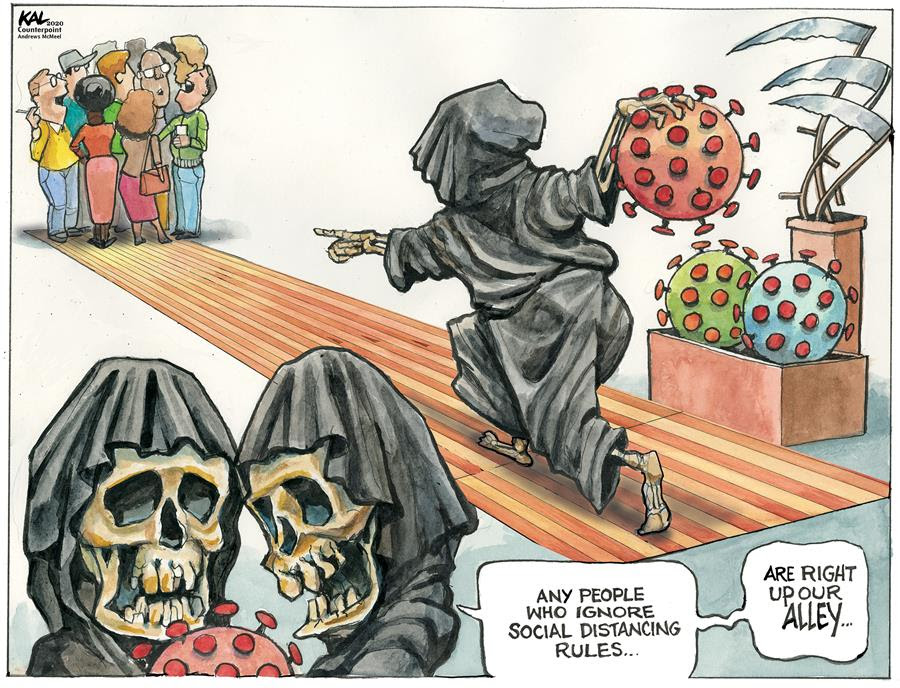
Downing is a fan of Donald Trump’s approach to the pandemic, which makes no sense at all given that the death rate in the U.S is four times per capita than what it is in Canada.
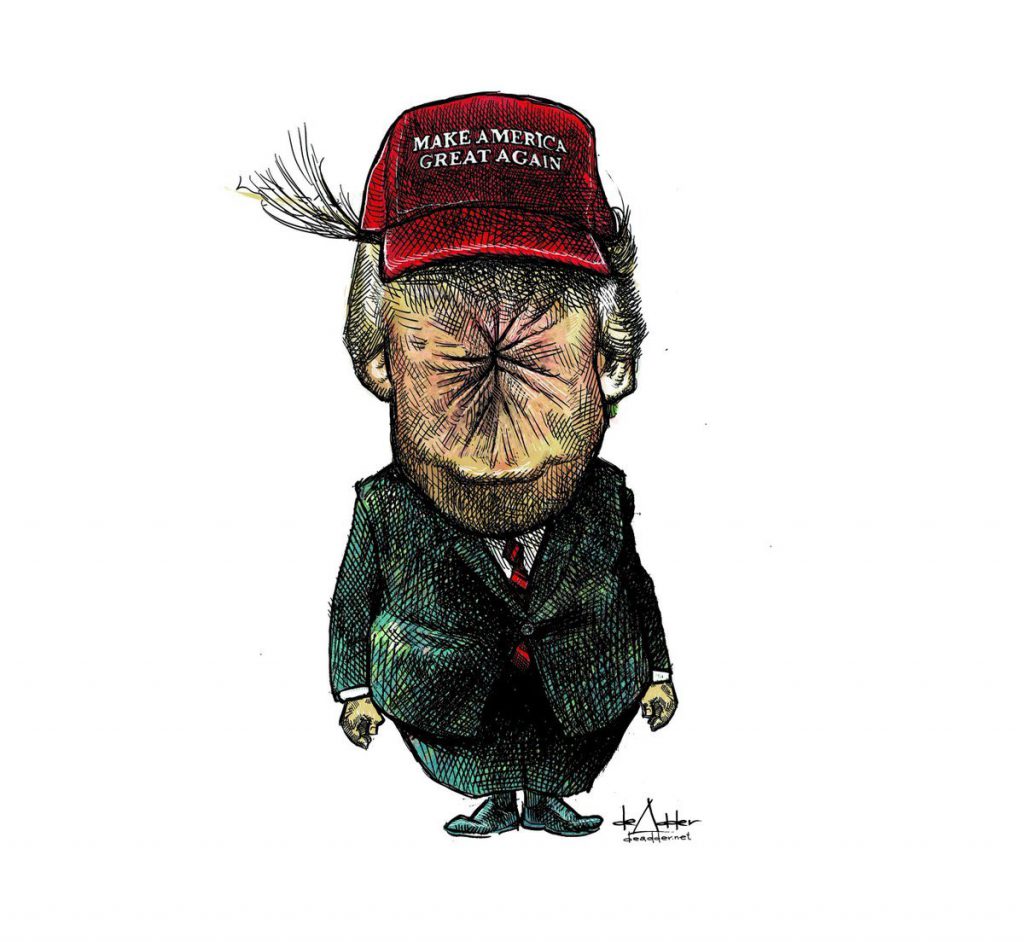
Best cartoon ever. By Michael de Adder
The Wexit spokesman is even advising people to get a prescription for hydroxychloroquine, the medication that Trump keeps promoting as a cure for COVID-19 even though there is no evidence of its effectiveness against the virus but there are clearly serious side effects.
That kind of promotion via social media may have been one of the reasons why Alberta’s Chief Medical Officer, Deena Hinshaw, last week made a point of warning doctors and pharmacists not to prescribe it as a treatment for COVID-19.
There’s no question that the vast majority of Albertans are more than a little worried about the future given the combination of the pandemic and the crash in oil prices.
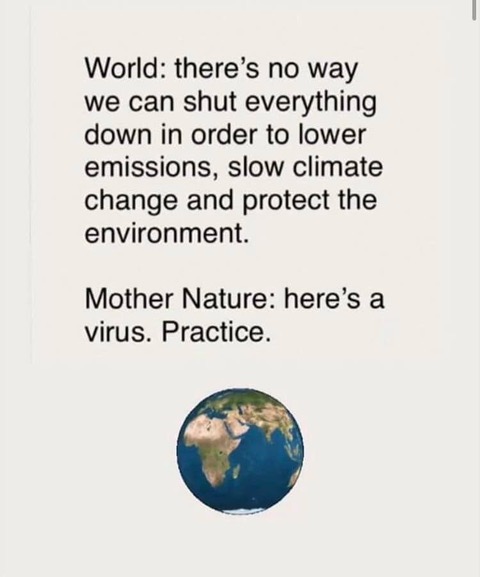
Premier Kenney has warned it will be as severe as the Great Depression of the 1930s.
Alberta is going to need plenty of grit, innovative thinking, and wise action if the province is to gain a foothold and start pulling itself up from the abyss.
Exploiting the fear and insecurity that abounds with fanatical ideas about Alberta going it alone, as Downing and his gang are doing, is the last thing we need.
Covid-19 Signals End Of Neo-Conservatism interview with John Ralston Saul, Latin America Herald Tribune, April 10, 2020
TORONTO – John Ralston Saul, for decades Canada’s pre-eminent public intellectual, says that the coronavirus pandemic and the dislocations that are accompanying it could deliver the final blow to globalism and create a chance to re-make the economy on the basis of cooperativism and a greater role for citizens.
Now 72, Saul has spent his adult life grappling with the concept of the nation, economic models, individualism and the structures or power.
The author of 14 books that have been translated into 28 languages sat down with EFE to talk about the economic, social and geopolitical implications of Covid-19, which has infected more than 1.2 million people worldwide and claimed nearly 73,000 lives while sending the global economy into a tailspin.
Question: In your 2004 essay, “The Collapse of Globalism,” you anticipated the end of the globalized economic system “with its technocratic and technological determinism and market idolatry.” Will COVID-19 finally end globalism?
Answer: It is self-evident that the system that has been in place for the last century has failed. That the idea that letting the market dominate, of putting the banks before citizens, all that has led to a rich-poor divide. All that has failed. It ought to be the end. There should have been major changes in 2008. They weren’t, they held on. (The elites) managed to redesign it so it was somehow not their fault.
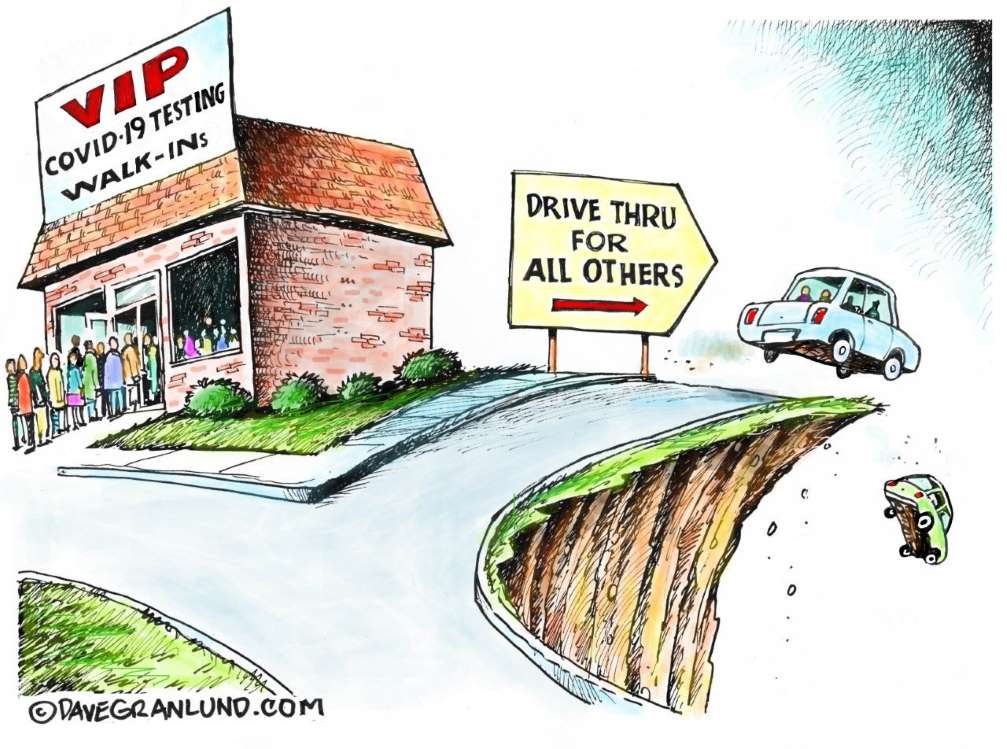
Q: You have said that if we don’t act in time, we will pay a heavier price. What do you mean?
A: I always use the example of what happened before, during and after the French Revolution and then the Napoleonic Wars. There was an enormous energy buildup in Europe that there would be enormous changes in 1815 (after Napoleon’s defeat at Waterloo). And instead of that, (Austrian statesman) Klemens von Metternich and the old elites manage to hold on to power and change the outcome of the war. And the result was a series of revolutions starting in 1848, the birth of communism, a new kind of violence, class warfare, two world wars. So you pay when you don’t act, when you know what the problem is.
Q: Is it possible to link COVID-19 and the other global crisis, the climate crisis?
A: I can’t think of a clearer message of nature being uncontrollable than this virus and us not being prepared for it. This will be as big as it is going to be. But compared to global warming, it will not be as big as that. This may wipe out half of the population or something like the Black Death (the plague that devastated Europe in the 14th century). But global warming will wipe out everything. Look at the parallels. It is about inclusive thinking. Globalization and efficiency and management is about exclusive thinking, by not including things, breaking everything into small bits.
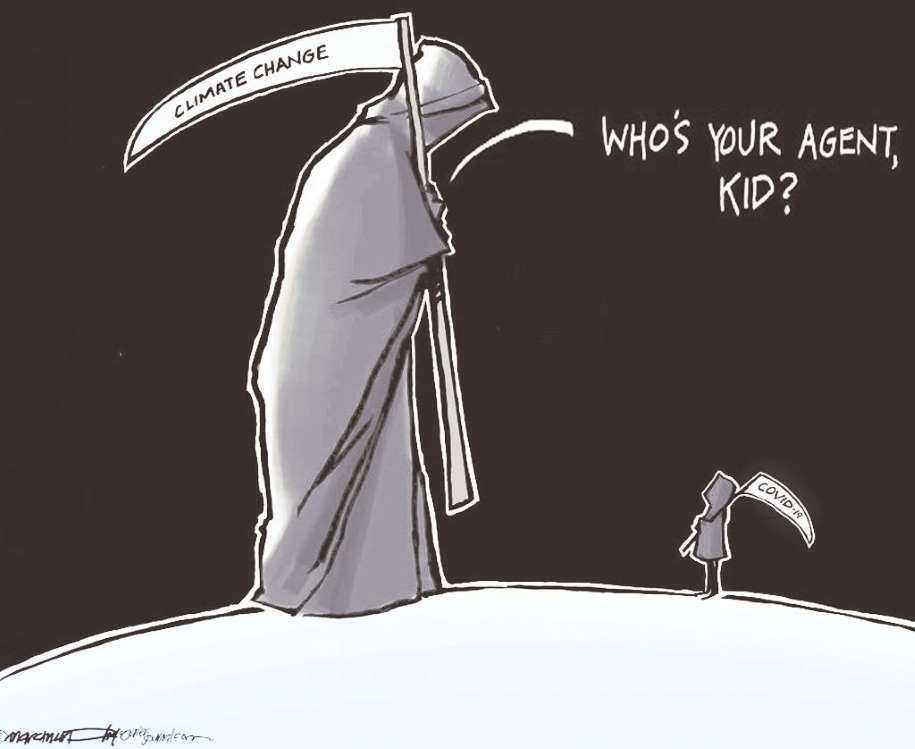
Q: Governments in Italy and Spain have decided to freeze their economies to save lives. Other countries, like the United Kingdom and the United States, tried to preserve the economy but finally followed the same route. Countries are willing to spend hundreds of billions of dollars to save the lives of some of their citizens. Isn’t that a triumph for citizenship?
A: It may be that humans react in very odd ways. And it may be that the people who are part of the civil service and the elected, no matter what their backgrounds, they know that they failed in 2008. It doesn’t matter what they say. They know that failed. And in a funny kind of way, this is the second opportunity for them. I think 2008 ended up being like John the Baptist, it was a wake-up call. And I think they instinctively knew it wasn’t good enough.
The response has actually been quite remarkable in most countries. They try to play catch up, yes, but they have actually responded very well. It is a triumph! They know what they are supposed to do and they have taken enormous risks. Everybody is saying this is like a war. But in most wars you get a month, six months, a year, to prepare. D-Day (the June 6, 1944, Allied invasion of Nazi-occupied France) took three years to prepare. They are doing things in three days. They are spending hundreds of billions of dollars in three, four days. This is really human beings thinking on their feet, this is what is remarkable.
This should really be the end of the neo-conservative movement.
Q: What do you mean?
A: What does that mean? What it really means is you have to attempt to freeze the economy. If you can freeze the economy, you can re-launch it afterwards. You have to think about debt not in the way we have tortured ourselves over debt in the last 30 years – tortured Africa into catastrophe, tortured Europe and the USA into catastrophe. This is the moment when we say all this debt that we racked up – we printed the money, we didn’t borrow the money – we are going to make it disappear. This could be done. This has been done in history. But it takes imagination to do it. They have shown they have imagination. Now they are going to have to use it in the rebuild.
Q: What is the role of citizens here?
A: This is not the sort of return of an old idea of socialism. This is not a Manichean drama in which the old-fashioned socialism beat the old-fashioned right wing. This has to be seen as an opportunity to build something completely different. This is the moment when the citizen really has to stand up, speak up, be heard, make the effort.
My definition of panic is that it is a very valuable tool for humanity. You have to know how to panic properly. And I think the citizens have panicked very well so far in this drama. Even in Italy and Spain, when you think where the drama is stupendous. In democracies, the citizens have acted with great dignity and great care in most cases. We need an enormous impetus of individuals into political life with a different view of what responsibility looks like, what I have called responsible individualism.
Q; What changes are necessary?
A: What has happened in the last half-century is that all the profits from technology breakthroughs have gone to a very small group of people. And the result is that the producers, the workers, the farmers, have become poorer and there has been this strange race to the bottom in terms of prices.
This was an enormous lost opportunity and I think we are now faced with the possibility that we could say, alright, how do you divide things up? How do you do things differently?
I think we have to avoid going back to the old battle of left and right. I am continually talking about cooperativism. How important that is. It had a big moment in the late 19th century through to the middle of the 20th century and then was pushed aside. But in fact, the cooperativism movement is very interesting because what it does is decentralize economic power. It is a way of bringing economic power much closer to the population and avoiding the idea that the profit goes to a very tiny group of people who will accumulate the wealth for themselves.
Q: Finally, how do you see geopolitics in a post-COVID-19 world?
A: Globalism is over, I have been saying that for some time. That, as a result of that reality – denied by the elites but a reality – we were heading to what was essentially a pre-modern regional struggle. Going right back to before the European empires. We are going back to a situation where there will be several regions and they will go to war with each other over whatever – economics, money, trade. China, South Asia, Europe, United States, and you would have all these unknowns: Africa, Russia, Latin America.
But you already see the USA feeling that it is no longer an international empire except militarily and entertainment-wise. Feeling that it has to protect its buffer zone. And I think out of this we will see the Americans ferocious in terms of Canada, Central America, South America and the Caribbean. Because they are going to try to hold on to what they perceive as their stuff.
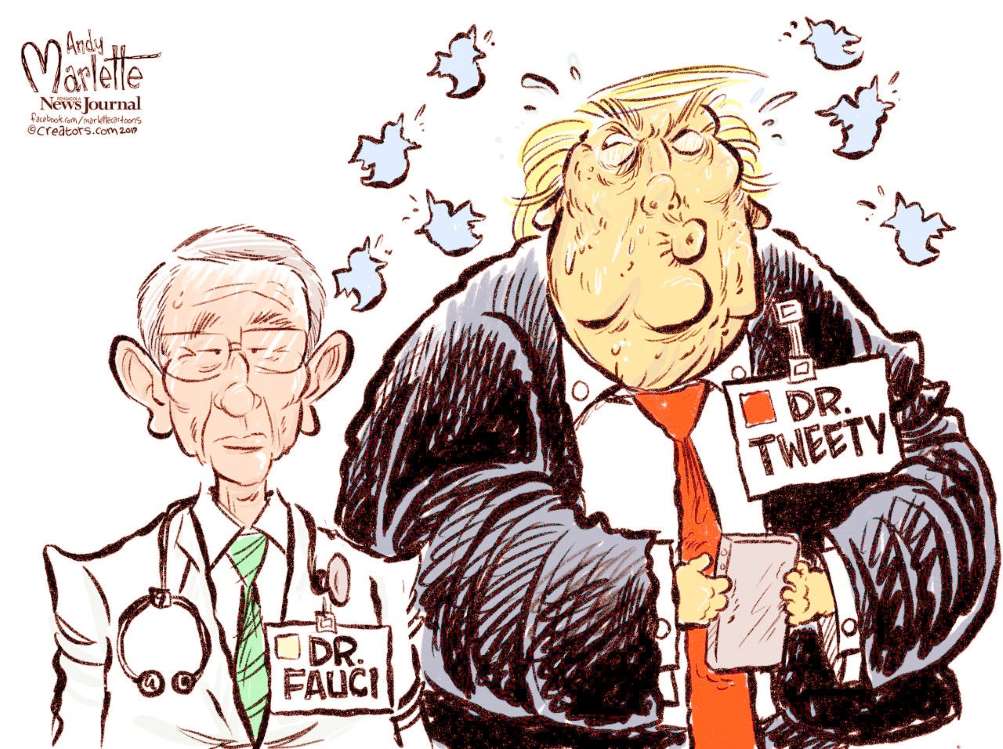
And you are going to see China – it never really wanted to be a global power, just wanted the raw materials – which is going to try really to solidify its power in Asia.
If the USA is on its way down, there is nothing more unforgiving and vicious than an empire in rapid decline.
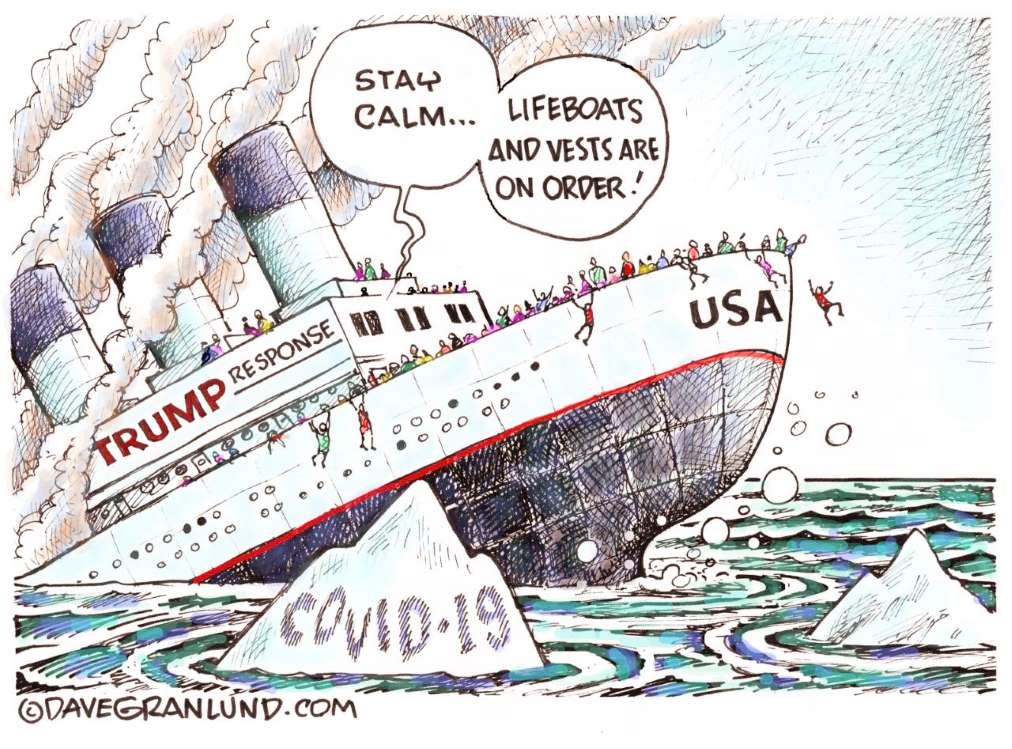
And we must not forget, if this continues to go the way it is going with COVID-19, the United States is going to be like a lion that has been mauled. And it is going to be angry, looking for revenge and it will not even understand its own actions. This is one of my greatest fears.
The other great fear coming out of this, frankly, you can already see the racist, the negative nationalist, the populist, angry, ugly voices figuring out how to use this to their advantage.
Watkins spirit lives on during pandemic battle by Rick Salutin, April 9, 2020, The Star
Mel Watkins was Canada’s most prominent socialist after the era of Tommy Douglas. As an academic in the 1960s, he led a study for the Liberal government on damage done to our economy by foreign control. Then he moved left into the NDP to implement his conclusions, was expelled by party bosses, but never abandoned his principles. Those went into eclipse, yet by his life’s end, last Thursday, they’d re-emerged.
What principles? He was a socialist and a nationalist.
Now the Trudeau government has effectively nationalized the economy and are essentially printing money without limit to do it. Why? Because the only way a society can fill its own urgent needs is through government.
All the crap of the last 30 years about business and finance being supreme has withered in weeks. They can’t do it, not because they’re sleazy, though they often are, but because they’re not designed for it. They’re made to profit owners.
There’s nothing noble about the state except: it’s the only force that can act for all society, in crises and normal times. Mel stayed a socialist in this way: he was one of those who put the social back in socialism.
He was a left nationalist in its heyday: think CanLit, Lightfoot, Russia-Canada ’72. Then it declined for decades. By the ’90s, he said he was teaching Canadian nationalism as a historical unit in his courses. Now nationalism is back, but on the right: in reaction to the flaws of free trade, globalization etc.
He felt the only response to Trump, Bolsonaro and their ilk was an anti-racist left nationalism, which acted for all citizens, not just the rich.
The Waffle, the dissident NDP movement he co-founded, had been, he said, “pretty impressive” for its time. But not enough to be smug. In a prescient article last fall, he said it missed environmental, native rights and LGBT issues. It was right about U.S. imperialism in Canada but Canada too was “an empire,” colonizing Indigenous peoples and plundering abroad, often through mining companies. I find this a pretty impressive level of self-criticism, from an 87-year-old retired prof, who’d stubbornly hung onto his early convictions.
How do you pull that off? Here the personal piece enters. He was tough. When the NDP treated him like dogs–t, he didn’t react bitterly. He moved to the north and worked with the Dene, expanding his sense of Canada. When he returned to teaching, the north was always among his courses. For the free trade fight of the late ’80s, he returned from the U.K., where he’d gone to accompany his wife, Kelly, for her journalism, as she’d accompanied him north. Eventually he rejoined the NDP and ran twice.
There was no petty ego in him — less than in most “influencers” probably — though he’d been seriously famous in his time. He didn’t neglect his family for the grand causes he was committed to. He treated the young as equals and learned from them. And he was funny.
When we lost the free trade election in 1988, and sat over beers explaining how to distract ourselves from our failure, I said I had to finish a book on the election. He burst out: “That’s it: one excellent book will justify this catastrophe!” — mocking his own academic pedigree.
So consider the present moment. Throughout his career he stressed the need to escape the “staples trap” — dependence on resource exports and failure to build stuff ourselves.
Then last month, the U.S. acted to stop delivery of medical gear — made with our own raw materials!
Justin Trudeau asked companies to “ramp up” production here, evoking “an avalanche” of offers from manufacturers, engineers and scientists. He sounded like John A. Macdonald introducing the National Policy in the 1870s. Shades of the Watkins Report.
Premier Doug Ford, who “loves Americans more than anyone,” was devastated by the U.S. betrayal (“I told the prime minister this must never happen again.”) ![]() Way too late Duggie! How many Canadians, including health care workers, have died and will die because of your trumpian American-worshipping betrayals? How will you ever make it right?
Way too late Duggie! How many Canadians, including health care workers, have died and will die because of your trumpian American-worshipping betrayals? How will you ever make it right?![]()
It was as if the spirit of Mel Watkins had migrated into a bare-knuckled right-winger. The Waffle had been right: no true Canadian independence without socialism, and no socialism without real (economic) independence.
I wish Mel was here to see it. But he did. He foresaw it.
Mel Watkins warned us of Canada’s current COVID-19 predicament by Thomas Walkom, April 9, 2020, The Star
Mel Watkins, the remarkable Canadian political economist, died last week at the age of 87. I wish he had lived longer. As Canada battles its way through the COVID-19 crisis, his clarity of thought would have proved invaluable. ![]() Indeed! Canada must not heed Kenney & his failure “economist” Steve Harper’s money laundering schemes to enrich the richest!
Indeed! Canada must not heed Kenney & his failure “economist” Steve Harper’s money laundering schemes to enrich the richest!![]()
Watkins was well-versed in orthodox, or so-called neoclassical, economics. He did his graduate work at America’s high-end Massachusetts Institute of Technology. He wrote about general equilibrium models in scholarly journals.
In the abstract mathematical debates that characterize so much of mainstream economics, he could hold his own.
But from early on, he also understood the limitations of conventional economics. He knew that the real world is not defined solely by supply and demand. Market forces do not always produce optimal results.
Politics matter. And so does history.
In this, Watkins was following in the footsteps of Harold Innis, another brilliant Canadian political economist.
To Innis, the world was not an abstraction. Rather, it was grounded in the details of reality. The Canadian economy, for instance, could only be understood through reference to the raw materials, or staples, that it produced for export. And the characteristics of these staples, which ranged from furs to codfish to wheat, defined the political and commercial institutions that developed in Canada over time.
When Watkins returned to the University of Toronto 1958, this time as a professor, its political economy department was the centre of Innisian thought. Watkins’ first major contribution to this school, in a 1963 journal article, was to translate Innis’s often obscure writings into terms that orthodox economists could understand.
But his real intellectual breakthrough was his focus on the concept of the staples trap. Building on Innis, he argued that reliance on the export of raw materials could deform a country, leaving it dependent on the whims of the imperial power it serviced.
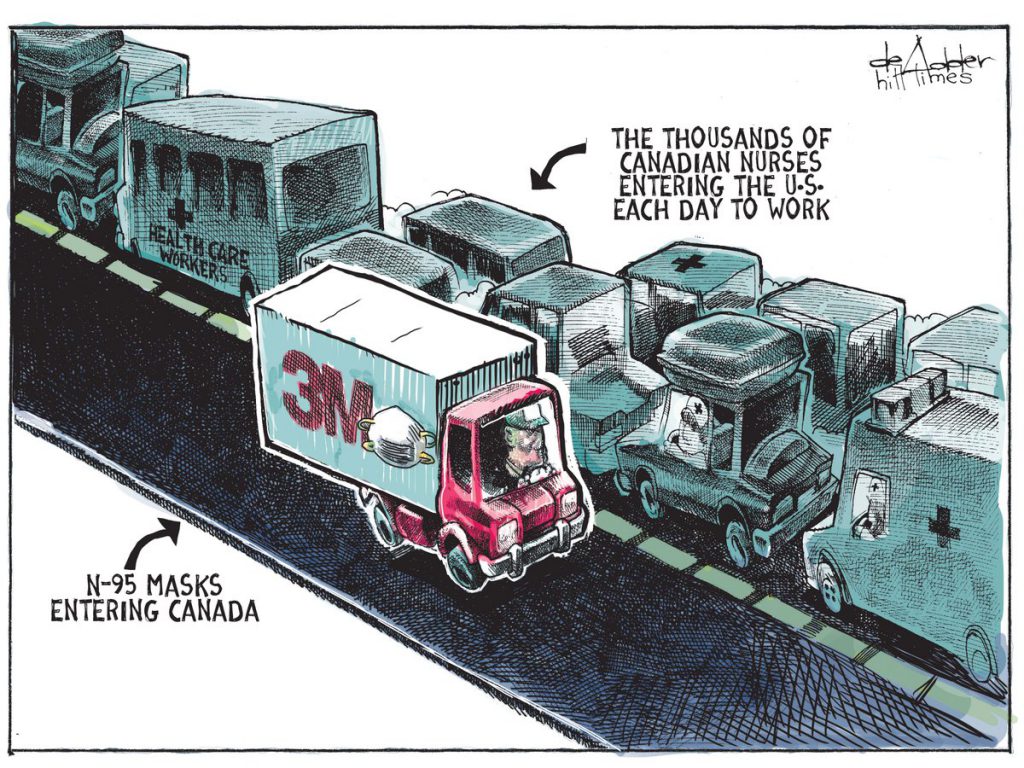
To Watkins, such a dependence characterized Canada’s relationship to the United States. In 1967, the then Liberal government appointed him to head a task force into foreign ownership. A year later, that task force recommended a series of measures aimed at reducing Canada’s dependence on the U.S.
For a few heady years, Watkins was the toast of the town and Canadian economic nationalism a real force. Under pressure from the nationalist left, Pierre Trudeau’s federal Liberal government reluctantly introduced controls on foreign investment. It even bought an oil company.
An attempt by Watkins and like-minded members of the so-called Waffle group to move the New Democratic Party to the left was less successful. In 1972, the NDP leadership purged the Waffle and expelled its members, including Watkins, from the party.
That estrangement quietly ended in 1997, when Watkins ran federally for the NDP.
Throughout, his economic nationalism never wavered. In the great, free-trade debate of 1988, Watkins was eloquent in his opposition to integrating the Canadian and U.S economies.
He argued that free trade would decimate Canadian manufacturing, increase the country’s dependence on raw materials and limit Ottawa’s ability to act in the national interest.
As it turned out, he was right. But he lost the political battle anyway. Free trade and globalization became done deals.
Now we are living with the results. The pandemic has once again illustrated Canada’s weaknesses. For instance, we produce the raw materials used to make the crucial N95 protective face masks. But we do not produce the masks themselves. And in spite of government promises, we are unlikely to do so in the near future.
That leaves us dependent on the whims of U.S. President Donald Trump and the good graces of Chinese leader Xi Jinping, both of whom head countries that do make such masks.
Meanwhile, Albertans suffer the consequences of their reliance on oil, a commodity susceptible to wild price swings over which they have no control.
Were he alive, Watkins might say that Canada is caught in a couple of classic staple traps. He’d be right again.
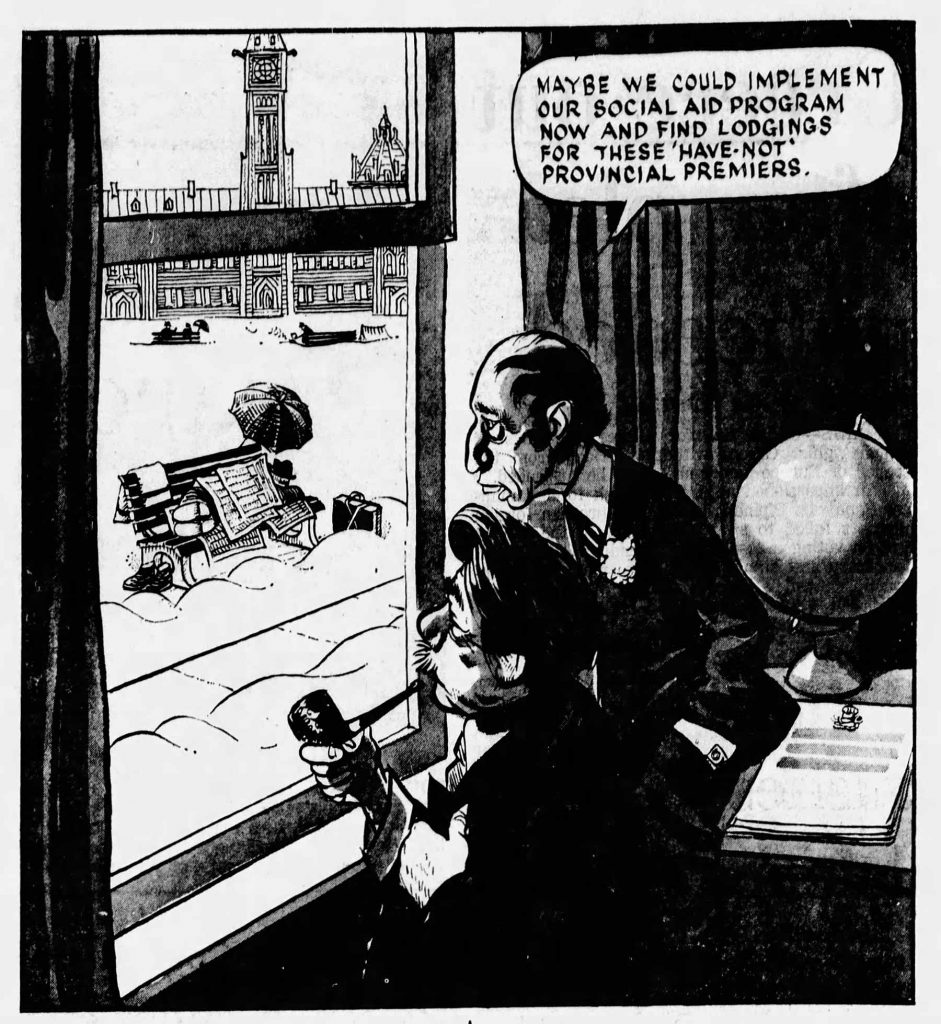
1969 12 13 The Province, a Vancouver newspaper cartoon of Trudeau Sr.
2018: Why equalization is not unfair to Alberta Keep in mind that Steve Harper & Jason Kenney implemented the current formula.
Financial transfers from Ottawa – and the provinces’ disputes over them – are central to the Canadian experience. They are a key reason why our country exists at all, but also a continual source of tension. Part of this is unavoidable. … But much of the anger – especially in Alberta and Saskatchewan – is stoked by commentators and politicians who are deliberately fanning the flames. …
Alberta’s large deficit also does not entitle it to equalization. After all, Alberta chooses to have low taxes and high spending, made possible by the luxury of high oil and gas royalties, which have now been reduced. Alberta’s politicians need to come to grips with the fiscal reality, not look to Ottawa for help. …
Refer also to:
2020: Why Jason Kenney’s $7.5-billion oil pipeline investment is a risky bet
Bad/risky bet or just more money laundering by a politician stealing from public health and education – during a pandemic no less – to feed oil patch billionaires and the remaining Koch Bro?
2019: Kenney’s $4.5 billion in corporate tax cuts obviously not enough to feed the greed.
